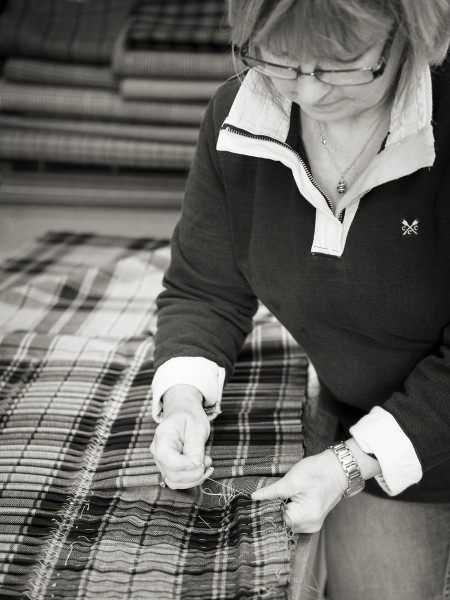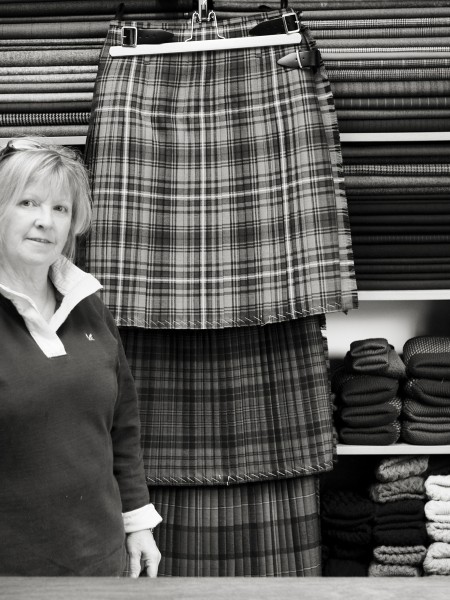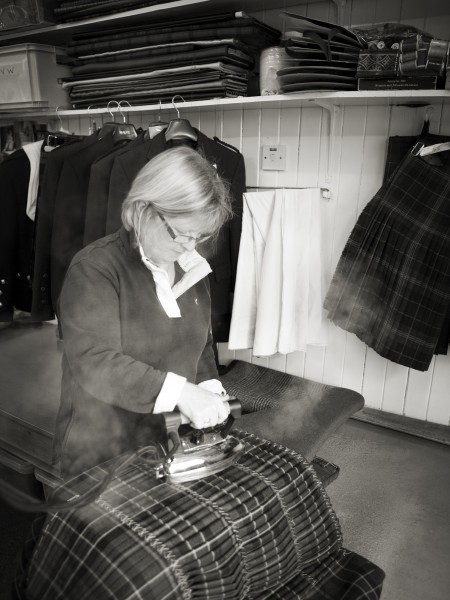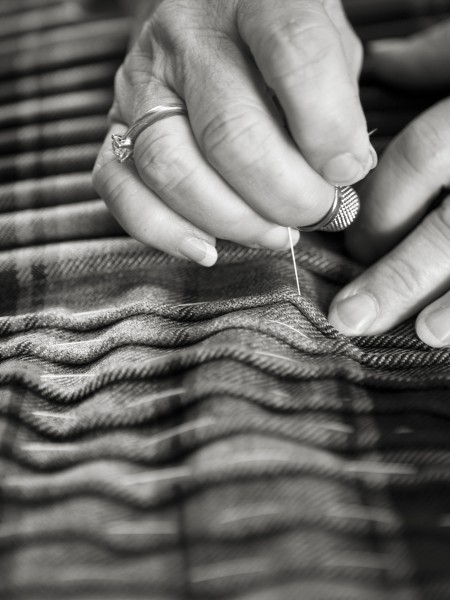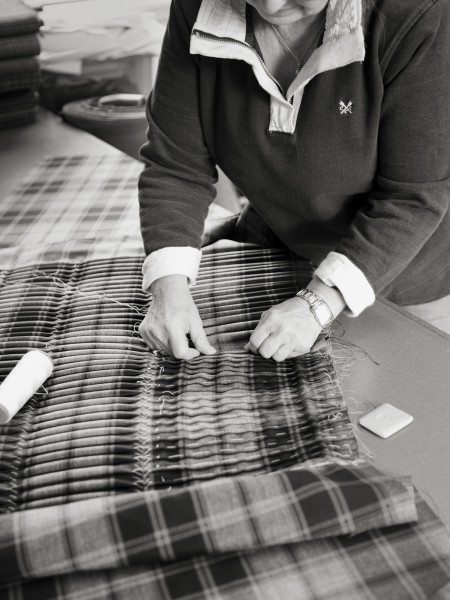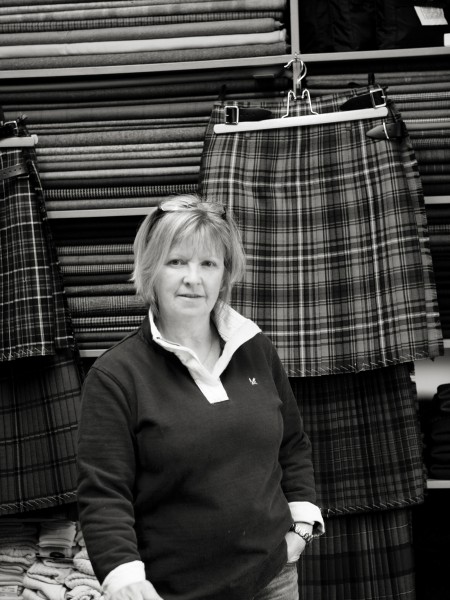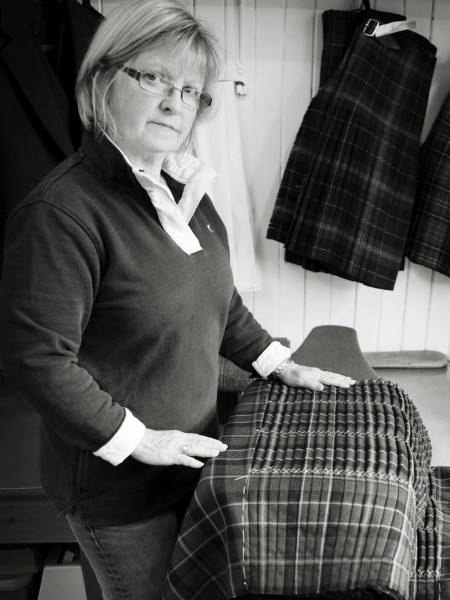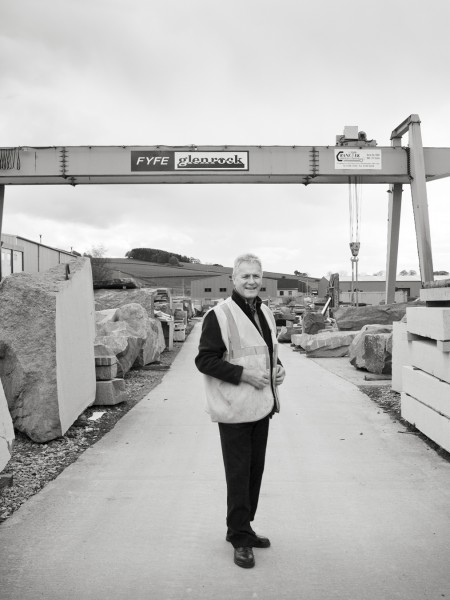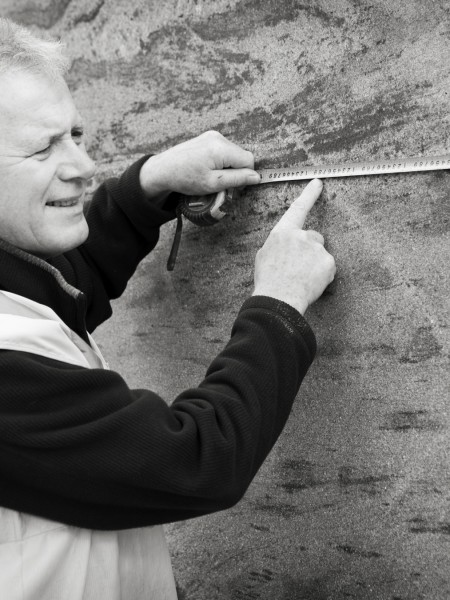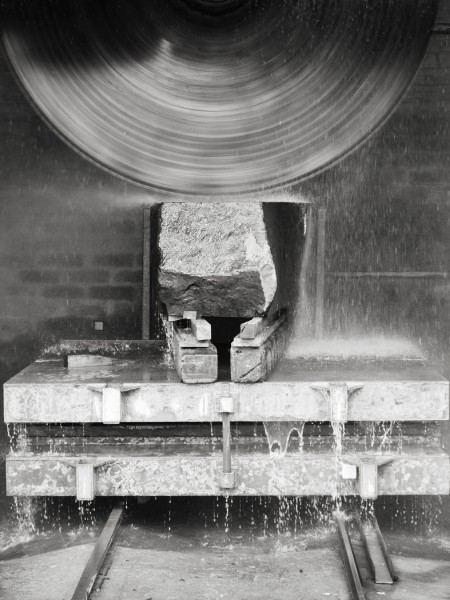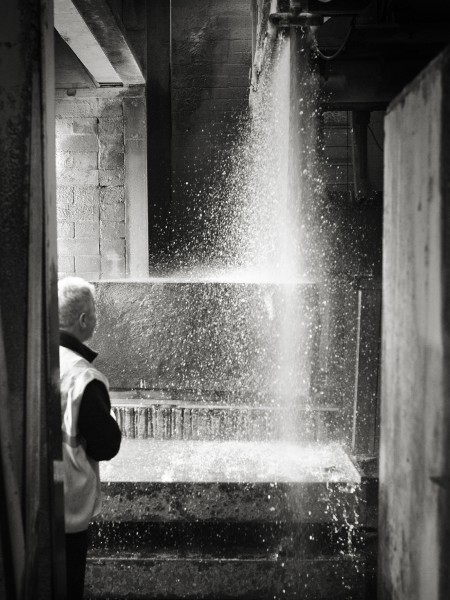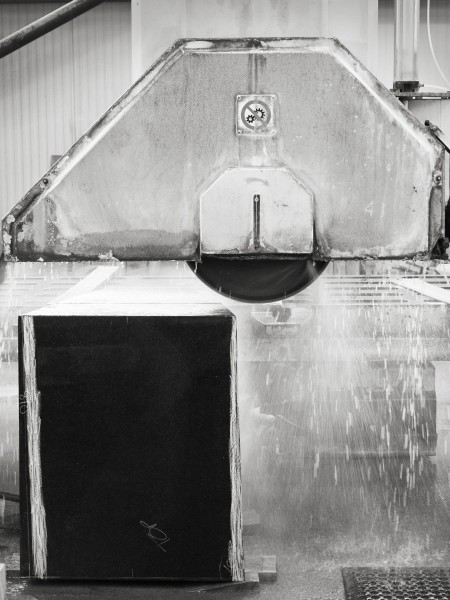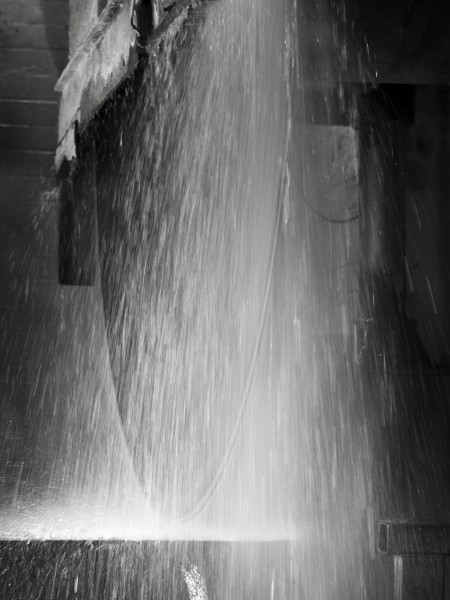Q. What is your principle professional skill?
Could you tell us a little about it?
A. Kilt making and tailoring, fifty-fifty. You could say that I am a gent’s outfitter.
Q. How long have you been practising your skill?
A. Over forty years.
Q. How did you learn your skill?
A. Well, it was handed down through the generations; probably bred into me. I started picking things up from my father and grandfather from an early age.
Q. Are there any other people in the region doing what you do?
A. I can’t think of any other business in the area that covers the spectrum of gents tailoring and kiltmaking in one business.
Q. How important do you think your skill is for the region?
A. Difficult one. Nothing is indispensable!
For the shooting fraternity, yes I am important as they do need bespoke garments.
I take great pride in delivery quality and personal attention – repeat orders and recommendations speak volumes.
Q. How has your profession evolved over the last few decades?
A. Well clothing has all become a bit cheap and nasty. It’s a battle against the cheap products and poorly made items available on the internet
It’s funny how in the car business expensive cars can be sold by the dozen but it’s difficult to get people to spend money on well-made clothes. We are luckier than some, living as we do in an affluent part of the world but there is still a big divide in salaries and expendable income.
Q. What are the main differences between now and when you started?
A. Financial pressure and quality.
Q. How do you anticipate the future to be for your skill?
A. Well I suppose as long as people are prepared to work hard and pay attention to detail it will survive. I don’t think many people would be prepared to do what I do on this scale – for the financial gain. I think it’s like the village cobbler, they’re all gone now, it tends to end up with big manufacturers.
It’s hard work but I have pride in my work (third generation pride).
Q. How important do you think it is to pass the skill on to the next generation?
A. I don’t know that I would want to pass on something that is so labour intensive. Working the way I do is just too labour intensive. It’s not just the tailoring, it’s all the administration etc.
Q. How could it be achieved?
A. Apprenticeships are one way but it would just create more work and I wouldn’t be able to produce so many garments while teaching someone.
Q. Would you be prepared to train someone?
A. Possibly.
Q. Do you think that society should feel obliged to find a way of preserving such skills?
A. Society already does. There are colleges that teach tailoring and kiltmaking.
But being a tailor means you have to be in an affluent area where people can afford expensive attire.
Q. Does having a skill change the way you see the world?
A. I suppose it does make me slightly critical. I see things that aren’t right. There aren’t many places that you can go to to buy a quality garment.
Q. What kind of rewards do you get from your skill, monetary and/or otherwise?
A. I get great satisfaction and a tax bill that would fear you. I can please people. My clients are mostly extremely satisfied and that also means repeat orders and recommendations to friends and family. It is very satisfying to know that I create a garment that will be handed down.
Q. What impact has broadband and the internet had on your work?
A. Not a huge impact on my work.
People coming to me are looking for a quality garment.
Q. How do you use the internet for your work?
A. Communication and banking mostly. I can communicate quicker with email.
I use a card machine in the shop now, that’s just expected in this day and age. But of course it escalates my bank costs, along with high postage charges. Email and internet banking help to reduce general expenses.
Q. What, if anything, could be done to help to preserve your skills and support your profession?
A. I dinne ken.
An extra day in the week.
Pam Blackhall
Tel: 013398 81359
email: pamblackhall@btconnect.com
